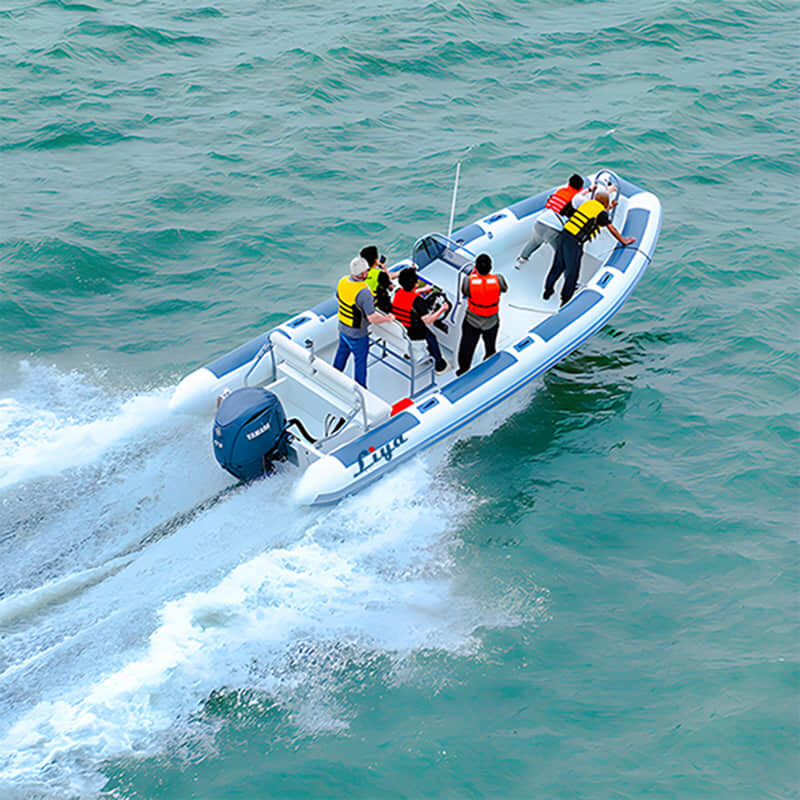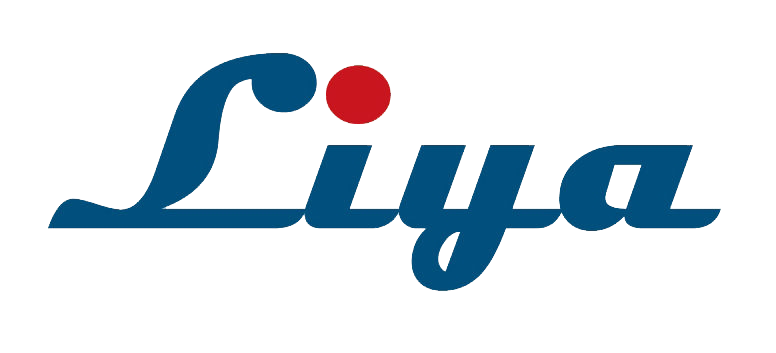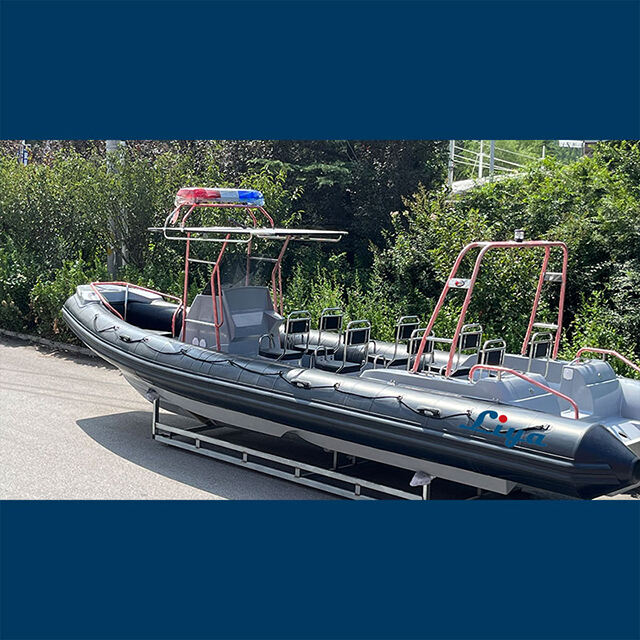A kemény törzsű felfújható hajók forradalmasították a tengeri műveleteket világszerte a katonai és kereskedelmi szektorokban. Ezek a sokoldalú hajók ötvözik egy merev törzs stabilitását a felfújható gumikazetták felhajtóerejével és ütéselnyelő képességével, így páratlan platformot teremtve a nehéz tengeri környezetekhez. Különleges alakulatok bevetéseitől kezdve jachtok támogatásáig a RHIB hajók kiemelkedő teljesítményt nyújtanak oda, ahol a hagyományos hajók határaikhoz érnek. Egyedi tervezési jellemzőik miatt elengedhetetlen eszközök azon szakemberek számára, akik megbízhatóságot, sebességet és manőverezhetőséget várnak el kihívásokkal teli körülmények között.

Kiváló dizájn és mérnöki innováció
Hibrid építési filozófia
A RHIB hajók mögött meghúzódó alapvető mérnöki elv a hibrid építési módszerük. A merev üveggyantából vagy alumíniumból készült törzs biztosítja a szerkezeti integritást és az iránystabilitást, míg a felfújható karima rendszer növeli a felhajtóerőt és az ütközések elleni ellenállást. Ez a kombináció olyan járművet eredményez, amely kiváló tengerjáró képességeket mutat, miközben kiváló rezgéscsillapító tulajdonságokkal is rendelkezik. A felfújható csövek az ütközési erőket egy nagyobb felületen osztják el, így védelmet nyújtva a személyzetnek és a felszerelésnek a kemény hullámok ellen, amelyek más, hagyományos törzsek integritását veszélyeztetnék.
A modern gyártástechnikák finomították ezt a tervezési koncepciót, hogy optimális súlyeloszlást és teljesítményjellemzőket érjenek el. A katonai fokozatú Hypalonból és megerősített alumíniumhajóból készült speciális anyagok növelik a működési élettartamot, miközben megőrzik a nagy sebességű műveletekhez elengedhetetlen könnyűséget. Ezeknek az alkatrészeknek az integrálása pontos mérnöki számításokat igényel, hogy biztosítsa a megfelelő egyensúlyt a stabilitás, a sebesség és a teherbírás között.
Fejlett anyagtechnológiák
A kortárs RHIB hajók korszerű anyagokat használnak, amelyek növelik a tartósságot és a teljesítményt különböző működési környezetekben. A nagy szilárdságú alumíniumötvözetek korrózióállóságot biztosítanak a tengervízben történő műveletekhez, miközben fenntartják a szerkezeti integritást extrém terhelési körülmények között. A felfújható bárka-rendszer többrétegű szövetkonstrukciót alkalmaz, amely speciális bevonattal rendelkezik, így ellenáll az UV-bomlásnak, vegyi hatásoknak és fizikai kopásnak.
Ezek az anyaginnovációk lehetővé teszik a működési képességek kiterjesztését a hagyományos korlátokon túl. A megerősített varratkonstrukciós technikák megszüntetik a gyakori hibalehetőségeket, miközben a fejlett szeleprendszerek gyors üzembehelyezést és megbízható felfújási teljesítményt biztosítanak. Ennek eredményeképpen egy olyan járműplatform jön létre, amely képes tartós műveletekre kemény környezetben, ahol a berendezések megbízhatósága közvetlen hatással van a küldetés sikerességére és a személyzet biztonságára.
Katonai alkalmazások és taktikai előnyök
Speciális műveleti képességek
A világszerte működő katonai erők a RHIB hajókat olyan különleges műveletekhez használják, amelyek rejtett műveletet, sebességet és operatív rugalmasságot igényelnek. Sekély merülésük lehetővé teszi a part menti területekhez és belső vízi útvonalakhoz való hozzáférést, amelyek nagyobb hajók számára elérhetetlenek. Csökkentett akusztikai nyomjelzőjük előnyt jelent a hagyományos járőrhajókhoz képest rejtett behatolási és kivonási feladatok során. A különleges alakulatok különösen értékelik a tengerparti partraszállások és a személyzet gyors átszállításának lehetőségét anélkül, hogy kikötői létesítményekre vagy speciális infrastruktúrára lenne szükség.
A moduláris tervezési filozófia lehetővé teszi a katonai egységek számára, hogy az RHIB hajókat konkrét küldetési igényekhez igazítsák. Fegyvermontázsok, kommunikációs berendezések és speciális rakománykonfigurációk gyorsan felszerelhetők vagy módosíthatók a műveleti igények alapján. Ez az alkalmazkodóképesség rendkívül értékes eszközzé teszi őket tengeri elfogási, felderítő és vészhelyzeti beavatkozási feladatok során, ahol a felszerelések sokoldalúsága közvetlen hatással van a küldetés sikerességére.
Katasztrófa utáni keresés és mentés műveletek
A tengeri kutató-mentő műveletek nagymértékben az RHIB hajókra támaszkodnak, amelyek kiemelkedő manőverezhetőségükkel és legénységet védő tulajdonságaikkal rendelkeznek. A felfújható karima rendszer belső stabilitást biztosít a személyzet kimentése során, miközben a merev törzs megbízható teljesítményt nyújt durva tengeri körülmények között is. Parti őrségi egységek és haditengerészeti mentőcsapatok ezeket a járműveket használják olyan körülmények között való hatékony működés miatt, amelyek más hagyományos mentőhajók teljesítményét veszélyeztetnék.
A gyors bevetési jellemzők növelik a vészhelyzeti reagálási képességeket RHIB hajók . A gyors indítási rendszerek lehetővé teszik a beavatkozó csapatok számára, hogy a segélykérés után percekkel már úton legyenek, miközben magas sebességük biztosítja a gyors érkezést a vészhelyzeti helyszínre. A stabil platform tervezése orvosi ellátást és sérültek evakuálását teszi lehetővé nehéz körülmények között is, ahol a pontosság és megbízhatóság döntő fontosságú tényezők.
Kereskedelmi tengeri alkalmazások
Jacht támogatás és csónakszolgáltatások
A luxusjachtok üzemeltetése egyre inkább függ a RHIB hajóktól, amelyek szállítási és kiszolgálási feladatokat látnak el. Képességük arra, hogy utasokat és rakományt szállítsanak a jacht és a part között, elengedhetetlen kapcsolódási lehetőséget biztosít távoli horgonyzóhelyeken. A professzionális megjelenés és a megbízható teljesítmény ideálissá teszi őket magas színvonalú bérelt üzemeltetéshez, ahol az ügyfelek biztonsága és kényelme elsődleges szempont. A jachtkiképzés értékeli az egyszerű kezelhetőséget és karbantartási jellemzőket, amelyek minimalizálják az üzemeltetési bonyodalmakat a hosszabb távú útvonalakon.
A kereskedelmi jachtok támogatása során nagy előnyt jelent a RHIB hajók sokoldalúsága a különböző szállítási igények kezelésében. A repülőtéri átszállásoktól kezdve a búvárkirándulásokig, ezek a járművek rendelkeznek a szakmai bérelt üzemeltetéshez szükséges teljesítményjellemzőkkel. Képességük arra, hogy különböző tengeri körülmények között is hatékonyan működjenek, biztosítja az állandó szolgáltatásnyújtást függetlenül az időjárási kihívásoktól, amelyek korlátozhatják az alternatív szállítási lehetőségeket.
Tengeri ipari támogatás
A tengeri energiatermelés kiterjedten használ RHIB hajókat személyszállításra és felszerelés-támogatásra. A szélturbinás parkok, olajfúrótornyok és tengeri építési projektek megbízható, biztonságosan működő szállítóeszközöket igényelnek, amelyek nehéz tengeri körülmények között is képesek üzemelni. Kiváló tengerjáró képességeik és a legénység biztonságát szolgáló funkcióik miatt az ipari üzemeltetők elsődleges választásai, ahol a felszerelések megbízhatósága közvetlenül befolyásolja az üzemeltetés biztonságát és termelékenységét.
Az akvakultúra műveletek és a tengerkutatási létesítmények RHIB hajókat használnak távoli helyszínek elérésére, miközben stabil munkaplatformot biztosítanak. A haltenyésztő üzemek rendszeres figyelemmel kísérését és karbantartását előnyösen befolyásolja a manőverezhetőség és a sekély merülés. A kutatószervezetek értékelik képességüket tudományos berendezések telepítésének és mintavételezési tevékenységek támogatására különböző tengeri környezetekben.
Teljesítményjellemzők és üzemeltetési előnyök
Sebesség- és manőverezhetőségi előnyök
A RHIB hajók könnyűsúlyú felépítése és hidrodinamikus tervezése kiváló sebességet és gyorsulást biztosít az azonos méretű hagyományos járművekhez képest. A modern külmotoros technológiák az optimalizált törzstervezéssel kombinálva lehetővé teszik a negyven csomónál nagyobb üzemsebességet, miközben fenntartják az üzemanyag-hatékonyságot. A precíz irányítási jellemzők lehetővé teszik a személyzet számára, hogy szűk terekben is hatékonyan manőverezzenek, és pontos mozgásokat hajtsanak végre, amelyek elengedhetetlenek a szakmai műveletek során.
A működési fürgeség nemcsak a maximális sebességet jelenti, hanem kiváló irányítási pontosságot és stabilitáskezelést is magában foglal. A felfújható gallérrendszer növeli a stabilitást nagy sebesség mellett, miközben csökkenti a hullámhatások hatását a személyzetre és a felszerelésekre. Ez a sebesség és stabilitás kombinációja lehetővé teszi a hosszabb ideig tartó műveleteket olyan körülmények között is, amelyek más hajótípusokat korlátoznának, maximalizálva ezzel a működési elérhetőséget és a küldetés hatékonyságát.
Üzemanyag-hatékonyság és hatótáv figyelembevétele
A modern RHIB hajók kiváló üzemanyag-hatékonyságot érnek el optimalizált törzskialakítással és fejlett hajtóműrendszerekkel. A könnyűsúlyú építés csökkenti az energiaigényt a hagyományos járművekhez képest, miközben a síkhajózásra alkalmas törzs jellemzői csökkentik a vízellenállást hajózási műveletek során. A szakmai felhasználók hosszabb hatótávolságból profitálnak, amely csökkenti az üzemanyagtöltések gyakoriságát és az üzemeltetési költségeket hosszabb küldetések vagy bérelt műveletek során.
Az üzemanyag-felhasználás optimalizálása különösen fontossá válik kereskedelmi műveletek esetében, ahol az üzemeltetési költségek közvetlenül befolyásolják a jövedelmezőséget. A maximális hatótáv elérése minimális üzemanyag-fogyasztással lehetővé teszi a tengeri műveletek meghosszabbítását, és csökkenti a part menti tankoló infrastruktúrához való függőséget. Ez az önállóság jelentős előnyökkel jár távoli területeken végzett műveletekhez és vészhelyzetek kezeléséhez.
Karbantartási és műszaki tekintetek
Rutin karbantartási követelmények
A RHIB hajók szakszerű üzemeltetése kiterjedt karbantartási protokollokat igényel, amelyek figyelembe veszik a merev törzset és a felfújható oldalrésszel rendelkező rendszereket egyaránt. A varratok épségének és a vászon állapotának rendszeres ellenőrzése megakadályozza, hogy kisebb problémák működési hibákká alakuljanak. Az motorok karbantartása a szokásos külmotor-szervizütemtervet követi, míg a törzs tisztítása és védelme fenntartja a teljesítményjellemzőket és meghosszabbítja a berendezés élettartamát.
A megelőző karbantartási gyakorlatok jelentősen meghosszabbítják az üzemeltetési élettartamot, és biztosítják a megbízható teljesítményt kritikus bevetések során. A megfelelő tárolási eljárások védelmet nyújtanak a felfújható alkatrészek számára az UV-bomlás és vegyi szennyeződések ellen, miközben a törzskarbantartás megakadályozza a korróziót és szerkezeti romlást. A szakmai üzemeltetők rendszerszerű karbantartási ütemterveket alkalmaznak, amelyek maximalizálják a berendezések elérhetőségét, miközben csökkentik a váratlan javítási költségeket.
Tároló és szállítási megoldások
A RHIB hajók összecsukható jellege jelentős előnyt jelent a tárolás és szállítás terén a hagyományos merev hajókhoz képest. A leeresztett galléros rendszerek csökkentik a tárolóhely-igényt, míg a moduláris alkatrészfelépítés hatékony szállítást tesz lehetővé távoli működési helyszínekre. A szakmai felhasználók alacsonyabb tárolási költségekből és növekedett telepítési rugalmasságból profitálnak szezonális műveletek vagy távoli projektek esetén.
A szállítási lehetőségek lehetővé teszik a gyors bevetést vészhelyzeti helyszínekre vagy ideiglenes műveleti bázisokra. A RHIB hajók szabványos járműpótkocsikkal történő szállításának képessége megszünteti a speciális szállítóeszközök igényét, csökkentve ezzel a működési bonyolultságot és a telepítési költségeket. Ez a mobilitási előny különösen értékes vészhelyzeti reagáló szervezetek és több földrajzi helyszínen tevékenykedő kereskedelmi szereplők számára.
Biztonsági funkciók és személyzetvédelem
Természetes stabilitási jellemzők
A felfújható gallér kialakítása olyan belső stabilitási előnyöket biztosít, amelyek javítják a személyzet biztonságát nehéz körülmények között végzett műveletek során. A több légtérnek köszönhetően a hajó továbbra is úszóképes marad akkor is, ha egyes szakaszok sérültek, miközben a nagy szélesség-hosszúság arány kiváló kezdeti stabilitást biztosít. Ezek a biztonsági jellemzők csökkentik az alulról felborulás kockázatát rossz időjárási körülmények vagy vészhelyzeti manőverek során.
A felfújható gallérrendszerbe épített ütközés elleni védelem elnyeli az ütődés energiáját, amely merev törzsű hajóknál közvetlenül a személyzetre hatna. Ez az energialevezető képesség különösen értékes kikötési műveletek, sekély vízű hajózás, valamint vészhelyzeti beavatkozások során, ahol akadályokkal vagy más hajókkal történő ütközés fordulhat elő.
Vészhelyzeti Reagálási Képességek
A RHIB hajók számos vészhelyzeti reagálási funkciót tartalmaznak, amelyek növelik a legénység túlélési esélyeit berendezés meghibásodása vagy extrém időjárási körülmények esetén. Az öntisztító fedélzeti kialakítás megakadályozza a víz felhalmozódását, ami instabilitást okozhat, míg a vészhelyzeti felszerelések rögzítőrendszere biztosítja, hogy a létfontosságú biztonsági eszközök mindig elérhetők maradjanak vészhelyzetben. A modern külső motorok megbízható indítási jellemzői biztonságot nyújtanak az evakuációs helyzetekben.
A vészhelyzeti kommunikációs berendezések integrálása folyamatos kapcsolattartást tesz lehetővé a támogató hajókkal vagy partmentes létesítményekkel működési vészhelyzetek során. A GPS-nyomkövető rendszerek és vészjelző funkciók lehetővé teszik a helyazonosítást a mentési műveletekhez, míg a redundáns biztonsági felszerelések rögzítési pontjai eleget tesznek a szakmai működési szabványok által előírt komplex vészhelyzeti felkészültségi követelményeknek.
GYIK
Miért jobbak a RHIB hajók a hagyományos járőrhajóknál katonai bevetéseken
A RHIB hajók kiváló sebességet, manőverezhetőséget és sekély merülést biztosítanak, amely lehetővé teszi a nagyobb járőrhajók számára elérhetetlen területek felkeresését. Csökkentett akusztikai nyomjelző képességük taktikai előnyt jelent titkos műveletek során, miközben a felfújható karima rendszer fokozott személyzeti védelmet nyújt nagy sebességű üzemeltetés és vészhelyzetek esetén. A moduláris tervezés lehetővé teszi a gyors átalakítást konkrét küldetési igényekhez anélkül, hogy kiterjedt módosításokra lenne szükség.
Hogyan teljesítenek a RHIB hajók durva tengeri körülmények között a hagyományos hajókhoz képest
A felfújható galléros rendszer kiváló ütéselnyelést és stabilitást biztosít durva tengeri körülmények között, mivel a hullámok által kifejtett erőt egy nagyobb felületen osztja el. Ez a tervezés csökkenti a személyzet fáradtságát és a berendezések sérülésének kockázatát hosszabb ideig tartó műveletek során nehéz körülmények között. A könnyűsúlyú szerkezet és az optimalizált törzstervezet megőrzi a sebességet és manőverezhetőséget, amelyek nagyobb tömegű hagyományos járműveknél hasonló méretek mellett romlanának.
Milyen karbantartási igények jellemzőek az RHIB hajókra az átlagos üveggyantából készült hajókhoz képest
A RHIB hajók további figyelmet igényelnek az idegített gallér karbantartásában, beleértve a rendszeres nyomásellenőrzést, varratvizsgálatot és anyagvédelmi kezeléseket. Az idegített alkatrészek védelmet igényelnek az UV-sugárzás és vegyi szennyeződések ellen, amelyek a hagyományos üveggyanta-héjakat nem érintik. Ugyanakkor az összes karbantartási igény gyakran csökkentett a modern anyagok korrózióállósága és a nagyobb hajókra jellemző összetett testátfúrásos szerelvények hiánya miatt.
Testre szabhatók-e a RHIB hajók speciális kereskedelmi alkalmazásokhoz
A modern RHIB hajók széles körű testreszabási lehetőségeket kínálnak, ideértve speciális üléselrendezéseket, felszerelés rögzítési rendszereket és meghajtási csomagokat, amelyeket konkrét működési igényekhez igazítanak. A kereskedelmi alkalmazások hasznot húznak a műszerfal módosításokból, kommunikációs berendezések integrációjából és az adott iparági igényekhez tervezett rakománykezelő rendszerekből. A szakmai gyártók egyedi mérnöki szolgáltatásokat nyújtanak, amelyek optimalizálják a hajó teljesítményét meghatározott működési profilokhoz, miközben fenntartják a biztonsági és megbízhatósági szabványokat.
Tartalomjegyzék
- Kiváló dizájn és mérnöki innováció
- Katonai alkalmazások és taktikai előnyök
- Kereskedelmi tengeri alkalmazások
- Teljesítményjellemzők és üzemeltetési előnyök
- Karbantartási és műszaki tekintetek
- Biztonsági funkciók és személyzetvédelem
-
GYIK
- Miért jobbak a RHIB hajók a hagyományos járőrhajóknál katonai bevetéseken
- Hogyan teljesítenek a RHIB hajók durva tengeri körülmények között a hagyományos hajókhoz képest
- Milyen karbantartási igények jellemzőek az RHIB hajókra az átlagos üveggyantából készült hajókhoz képest
- Testre szabhatók-e a RHIB hajók speciális kereskedelmi alkalmazásokhoz

